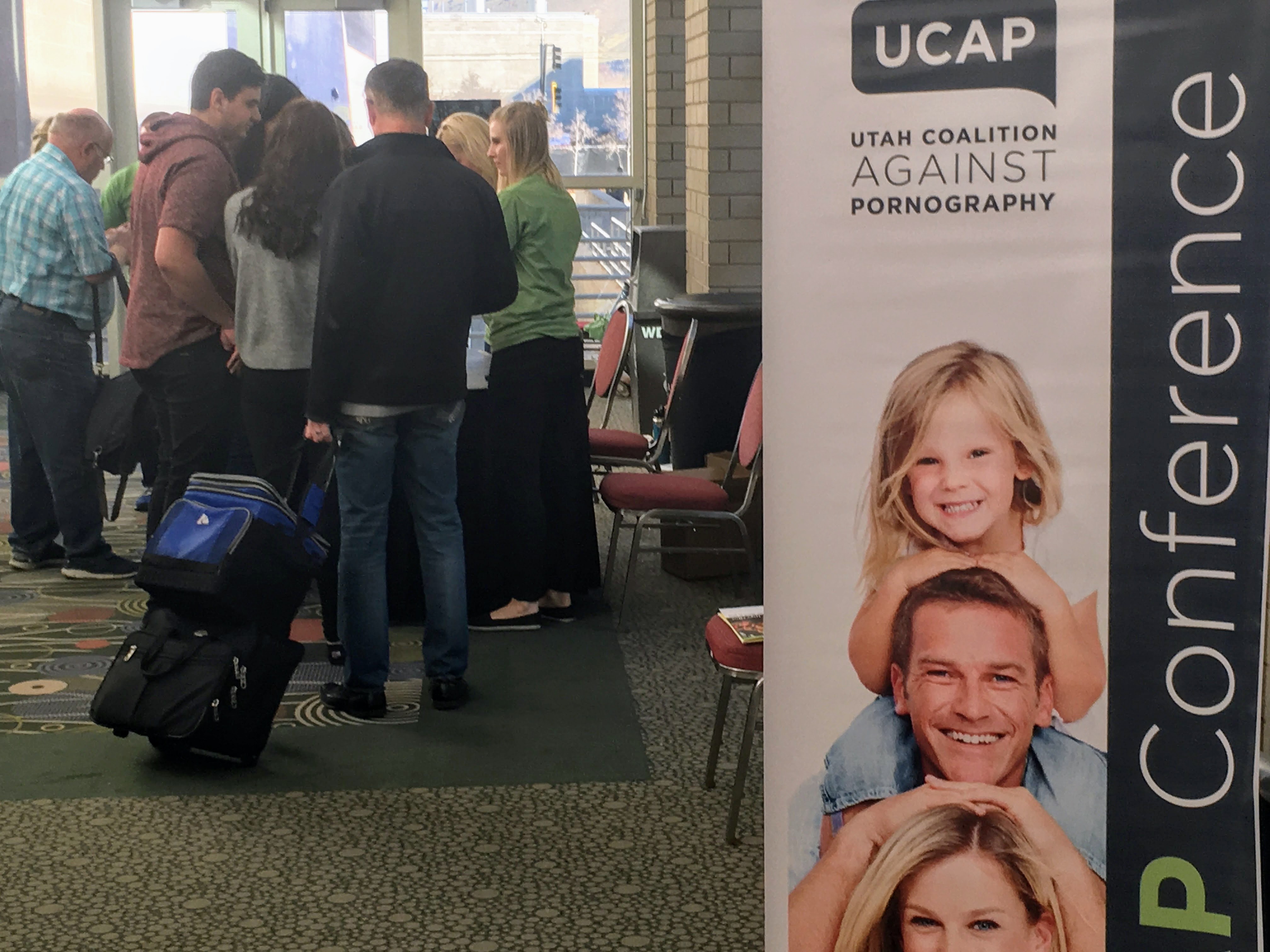
Editor’s Note: This story is paired with another titled, “Utah families can now sue pornography producers for harm to minors“
Much of the talk involved the relationship between husbands and wives at a recent anti-pornography conference in Salt Lake City, but there was another link in the conversation: children.
Jeremy Boberg, social worker and owner of Utah Addiction Centers, said the fight with pornography isn’t just about the relationship between husband and wife. He said it may never have only been about the adults in a home.
“What we’re seeing right now, the pornographers — they’ll openly admit it — they’re marketing to eight-year-olds,” Boberg said.
Boberg said pornographers hope to hook children early using child porn and video games. He said all someone has to do to access pornographic images is to simply visit a gaming website, and by the time these children are adults, they’re already addicted.
“This is an issue of — especially when it comes to the children — of creating new neural pathways in the brain that that child’s brain is not ready to handle,” Boberg said.
He said the pornography epidemic isn’t only confined to the commercial market, but he said he believes producers are trying to break their way into the school curriculum. For years, the Utah Legislature considered instituting comprehensive sex education in public schools across the state.
A bill proposing a comprehensive statewide sex education curriculum — HB215 — was introduced during the most recent legislative session, but died in committee.
Boberg said Planned Parenthood, which supported the bill, has done some good, but they also promote teaching children how to masturbate. Not only this, but he also said they want to teach children how to put on a condom — things he said he believes a child’s brain is not capable of comprehending.
“The criteria is — on the worksheets they use — is that it’s great for foreplay,” Boberg said. “A ten-year-old’s brain is not capable of dealing with that kind of (crisis) and chaos.”
Boberg said the most effective way to protect children from pornography is to talk about the facts, to teach them about pornography and to create an atmosphere for open conversation.
He said being open about pornography is important because pornography disconnects people from reality, and the best way to combat pornography is to make human connections, especially with people who have children’s best interests at heart.
“Utah Coalition Against Pornography does not have an official opinion on comprehensive sexuality education,” said Vauna Davis, executive director of the Utah Coalition Against Pornography, in an email.
She said the “comments (at the conference) were from individuals speaking for themselves, not UCAP (Utah Coalition Against Pornography).”
Cordelia Anderson, has been working with prevention for the past 40 years. She is the founder of Sensibilities Prevention Service and is also a board member with the National Center for Missing and Exploited Children.
Anderson spoke about pornography as a public health crisis during the recent Utah Coalition Against Pornography conference, discussing what it means for something to be considered a public health crisis, and how to talk about and understand the issue to better find solutions.
She also emphasized the need for more open conversation. She said children are learning more about sex and gender from the media than they are from their parents at home.
“That is sadly where they’re getting most of their so-called ‘sexuality education,'” Anderson said. “They’re looking at porn and pornified images and then the pornified mainstream culture, and they’re thinking that’s accurate.”
She said society has been criminalizing pornographic behavior, and because society criminalizes it, society looks for solutions in that context. Instead of treating the injured once they’ve been harmed, society incarcerates people once they’ve broken the law. Anderson said a reason for this is society has normalized the behavior as acceptable.
“Our children have gone from Dr. Seuss to porn,” Anderson said.

Anderson said one of the reasons porn is even a problem with children in the first place is because adults are afraid to talk about it.
“We want to protect children, and we think that protecting children is shielding them from that information and images,” Anderson said. “And yet they’re getting it, and we’re allowing that to happen.”
Anderson said the effects of children viewing pornography can have on the family can be just as traumatic as they are shocking. She said she has seen cases where the parents blame each other, thinking their partner has accessed the graphic content, and then are surprised to find out it was their child.
“It’s hard because most parents don’t believe that their kids could get access to such things,” Anderson said. “So, they wouldn’t be thinking that they need to talk to their kids about what they’re getting access to in their homes or at other homes, or at other public places.”
Anderson said avoiding the subject causes children to go off on their own looking for answers, which feeds their curiosity. Another problem, she said, is adults and parents don’t want to admit their children are also sexual beings.
Part of the discomfort for parents comes from a belief that this curiosity comes from a desire to be sexually active. She said it’s not about that; it’s simply part of who they are.
The more adults help their children navigate their curiosity, the better they can avoid the confusion pornography can cause, because changes in sexual maturity don’t happen overnight, Anderson said.
“You don’t suddenly become a sexual human at 18 or at 21, or whenever you get married,” she said. “(There are) age-and stage-appropriate ways to educate children, and pornography is not that.”




